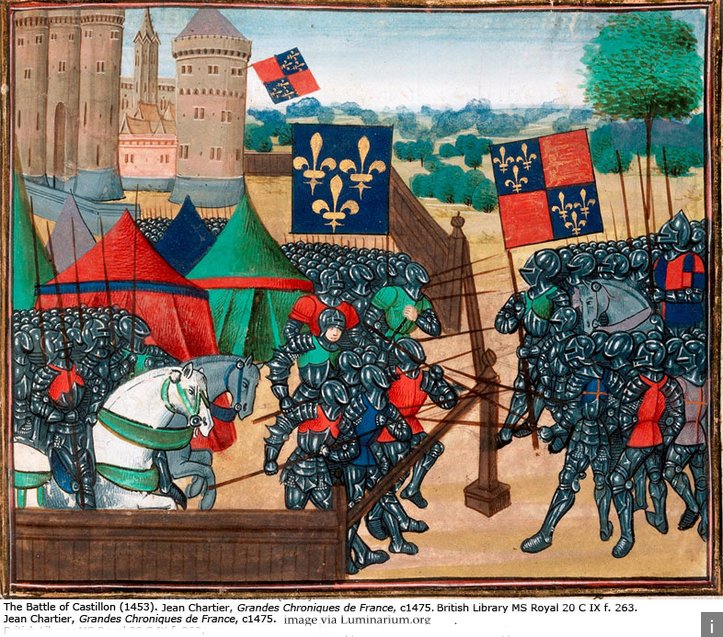


Another good touch is that the cast line the exit so some good opportunity for photos with the Actors after asking is available All in all well worth it and I would attend again but the booking/refund system does need to be brought into this century. There are bangs and pops during the battle scenes but my nervous mother-in-law seemed to cope OK. Fantastic horsemanship and plenty to see. The story is all read out in French which, given the amount of Brits attendin, could have been catered for in a pre-recorded player as the evening went on but hey, it is their gig and they did win the War. Try to get seats mid-stand, we had block E, as there is plenty going on each side of the 'stage'. Car parking is well organised and there are loos on the site. Historians regard this decisive French victory as marking the end of the Hundred Years War. There is food there if you pre-book and of course there is the obligatory chip stall but nothing else. The Battle of Castillon between the forces of England and France took place on 17 July 1453 in Gascony near the town of Castillon-sur-Dordogne (later Castillon-la-Bataille). Bring a picnic and you can watch the sword displays and animals in the atmosphere of the 'medieval village'. The show starts at 1030pm and they say to arrive an hour ahead which is probably a good idea. This year I had a friend buy the tickets locally in case of the same problem but glad to say the weather held off to provide a super evening. All Rights Reserved.Like others on this site I too was unable to attend last year due to bad weather but after a lot of badgering I was issued with a EUR cheque as a refund. Fuller’s two-volume “Decisive Battles: Their Influence Upon History and Civilisation” in 1939 are but two examples of the concept’s survival into the 20th century.Ĭopyright ©2023 Dow Jones & Company, Inc. Basil Liddell Hart’s “The Decisive Wars of History” in 1929 and J.F.C. The victors from Marathon to Waterloo had all changed the course of history for the better, Creasy argued, with these “collisions” giving “an impulse which will sway the fortunes of successive generations of mankind.” Such admirable traits as Greek wisdom, Roman virtue, European Protestantism and English liberty had all been preserved for posterity by battle. Sir Edward Creasy’s “The Fifteen Decisive Battles of the World,” published in 1851, exemplified the military version of “Whig history,” which tends to identify some individuals and movements as winners and others as losers insofar as they pushed toward an outcome judged desirable in hindsight. Photo: Christopher Anderson/Magnum Photos

Tanks from the ‘Wild Bunch’ company of Task Force 1-64 Armor wait out a sandstorm in Iraq, 2003.


 0 kommentar(er)
0 kommentar(er)
